Results
- No filter selected.
- en Magazine
- Magazine Accelerate
- Magazine Collaborate
- Magazine Innovate
- en Overview
- Overview Foreword
- Overview Key Data Covestro Group
- Overview Report Profile
- en To our Shareholders
- To our Shareholders Report of the Supervisory Board
- To our Shareholders Covestro on the Capital Market
- en Management Report
- Management Report Covestro Group at a Glance
- Covestro Group at a Glance Company Profile
- Covestro Group at a Glance Strategy
- Strategy Purpose and Vision
- Strategy Group Strategy
- Strategy Strategy of the Reportable Segments
- Covestro Group at a Glance Management
- Management Overview
- Management Business Performance
- Management Sustainability
- Management Corporate Policies
- Covestro Group at a Glance Circular Economy
- Covestro Group at a Glance Innovation
- Covestro Group at a Glance Employees
- Covestro Group at a Glance Integrated Management System for Health, Safety, Environment, Energy, and Quality
- Covestro Group at a Glance Safety
- Covestro Group at a Glance Environmental Protection
- Covestro Group at a Glance Sustainability in the Supply Chain
- Covestro Group at a Glance Social Responsibility
- Management Report Report on Economic Position
- Report on Economic Position Economic Environment
- Report on Economic Position Business Performance at a Glance
- Report on Economic Position Results of Operations, Financial Position, and Net Assets of the Covestro Group
- Results of Operations, Financial Position, and Net Assets of the Covestro Group Key data Covestro Group
- Results of Operations, Financial Position, and Net Assets of the Covestro Group Results of Operations
- Results of Operations, Financial Position, and Net Assets of the Covestro Group Financial Position
- Results of Operations, Financial Position, and Net Assets of the Covestro Group Net Assets
- Report on Economic Position Performance of the Reportable Segments
- Performance of the Reportable Segments Polyurethanes
- Performance of the Reportable Segments Polycarbonates
- Performance of the Reportable Segments Coatings, Adhesives, Specialties
- Report on Economic Position Results of Operations, Financial Position and Net Assets of Covestro AG
- Management Report Report on Future Perspectives and on Opportunities and Risks
- Report on Future Perspectives and on Opportunities and Risks Report on Future Perspectives
- Report on Future Perspectives and on Opportunities and Risks Opportunities and Risks Report
- Opportunities and Risks Report Overview
- Opportunities and Risks Report Group-Wide Opportunities and Risk Management System
- Opportunities and Risks Report Opportunities and Risks
- Management Report Corporate Governance
- Corporate Governance Overview
- Corporate Governance Declaration on Corporate Governance
- Corporate Governance Takeover-Relevant Information
- Corporate Governance Compliance
- Corporate Governance Compensation Report
- Compensation Report Overview
- Compensation Report Compensation of the Board of Management
- Compensation Report Compensation of former members of the Board of Management
- Compensation Report Compensation of the Supervisory Board
- Compensation Report Other information
- Management Report Disclosures on Sustainability Reporting
- Disclosures on Sustainability Reporting Overview
- Disclosures on Sustainability Reporting Nonfinancial Group statement
- Disclosures on Sustainability Reporting Recommendations of the Task Force on Climate-related Financial Disclosures (TCFD)
- Disclosures on Sustainability Reporting GRI Index
- en Financial Statements
- Financial Statements Covestro Group Consolidated Income Statement
- Financial Statements Covestro Group Consolidated Statement of Comprehensive Income
- Financial Statements Covestro Group Consolidated Statement of Financial Position
- Financial Statements Covestro Group Consolidated Statement of Cash Flows
- Financial Statements Covestro Group Consolidated Statement of Changes in Equity
- Financial Statements Notes to the Consolidated Financial Statements of the Covestro Group
- Notes to the Consolidated Financial Statements of the Covestro Group Principles and Methods
- Principles and Methods 1. General Information
- Principles and Methods 2. Effects of New Financial Reporting Standards
- Principles and Methods 3. Accounting Policies and Valuation Principles
- Principles and Methods 4. Change in Presentation for Rebates Granted to Customers and Trade Working Capital
- Principles and Methods 5. Effects of the Coronavirus Pandemic on Financial Reporting
- Principles and Methods 6. Segment and Regional Reporting
- Principles and Methods 7. Changes in the Scope of Consolidation
- Notes to the Consolidated Financial Statements of the Covestro Group Notes to the Income Statement
- Notes to the Income Statement 8. Sales
- Notes to the Income Statement 9. Other Operating Income
- Notes to the Income Statement 10. Other Operating Expenses
- Notes to the Income Statement 11. Personnel Expenses and Employee Numbers
- Notes to the Income Statement 12. Financial Result
- Notes to the Income Statement 13. Taxes
- Notes to the Income Statement 14. Earnings per Share
- Notes to the Consolidated Financial Statements of the Covestro Group Notes to the Statement of Financial Position
- Notes to the Statement of Financial Position 15. Goodwill and Other Intangible Assets
- Notes to the Statement of Financial Position 16. Property, Plant and Equipment
- Notes to the Statement of Financial Position 17. Investments Accounted for Using the Equity Method
- Notes to the Statement of Financial Position 18. Other Financial Assets
- Notes to the Statement of Financial Position 19. Inventories
- Notes to the Statement of Financial Position 20. Other Receivables
- Notes to the Statement of Financial Position 21. Equity
- Notes to the Statement of Financial Position 22. Provisions for Pensions and Other Post-employment Benefits
- Notes to the Statement of Financial Position 23. Other Provisions
- Notes to the Statement of Financial Position 24. Financing and Financial Liabilities
- Notes to the Statement of Financial Position 25. Other Liabilities
- Notes to the Statement of Financial Position 26. Financial Instruments
- Notes to the Statement of Financial Position 27. Contingent Liabilities and Other Financial Commitments
- Notes to the Statement of Financial Position 28. Legal Risks
- Notes to the Consolidated Financial Statements of the Covestro Group Other Information
- Other Information 29. Notes to the Statement of Cash Flows
- Other Information 30. Related Companies and Persons
- Other Information 31. Auditor’s Fees
- Other Information 32. Events after the End of the Reporting Period
- en Further Information
- Further Information Responsibility Statement
- Further Information Independent Auditor’s Report
- Further Information Limited Assurance Report of the Independent Auditor regarding the supplementary sustainability information
- Further Information Segment and Quarterly Overview
- Further Information Five-Year Summary
- Further Information Financial Calendar
Collaborate
To protect the planet, the world must act as one
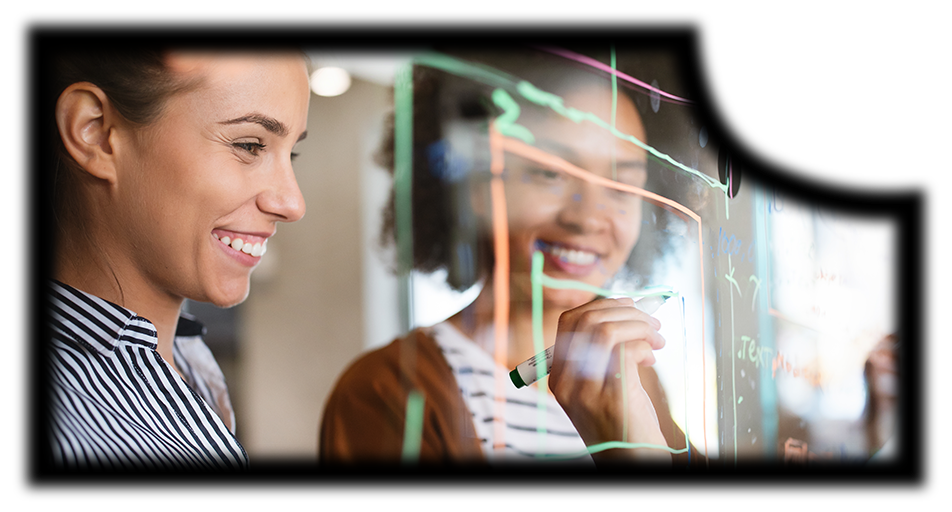
No single entity can become fully circular alone. For this challenge of the century, stakeholders must unite to fight waste in the Alliance to End Plastic Waste. They must establish new value chains to recycle water barrels in China, and add blockchain technology to plastic waste to make it traceable and reusable. And this is only the start.
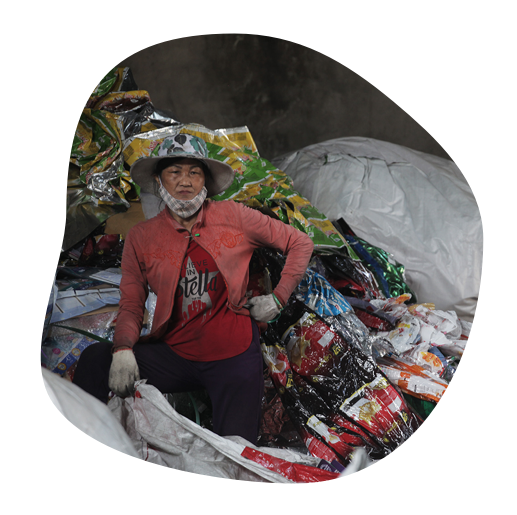
From Waste to Worth
No single entity can become fully circular alone; the challenges to be solved and the tasks involved are simply too complex. These include building awareness of the value and correct end of life treatment of plastics, establishing infrastructures to enable the collection and recycling of plastic waste, and identifying and nurturing promising ideas. Whatever the endeavor, the collective action and leadership of stakeholders across the plastics value chain is required. The Alliance to End Plastic Waste (AEPW), of which Covestro is a founding member, serves precisely this purpose.
Stakeholders need to unite
Numerous success stories can be found across the globe less than two years after its launch. In Ghana, for example, where women are being empowered to start their own plastics recycling businesses. Or in India, where the Alliance has joined forces with German partner ‘Deutsche Gesellschaft für Internationale Zusammenarbeit’ (GIZ) to test approaches for various solutions that prevent plastic waste from leaking into the Ganges river.
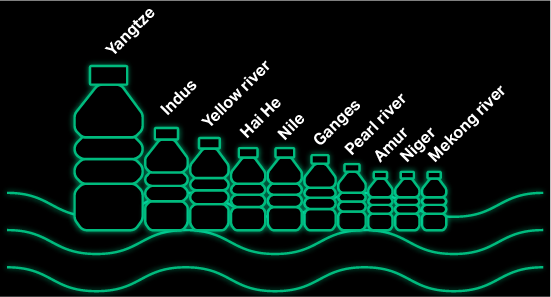
90% of river-derived plastic waste in our oceans originates from just 10 rivers.
Wherever it gets involved, the AEPW and its members seek support from leading global organizations as well as collaboration with local governments, companies and communities. Member companies of the Alliance, including Covestro, have a collective target of USD 1.5 billion of investment over the next five years. By enabling local solutions and helping them to become “investment-ready”, the aim is to attract independent capital investments, thereby making the initiatives capable of sustaining and scaling themselves. Step by step, the Alliance and its members are bridging the gap between private sector financial commitment and concrete, scalable actions on the ground – in order to end plastic waste and foster a circular economy.
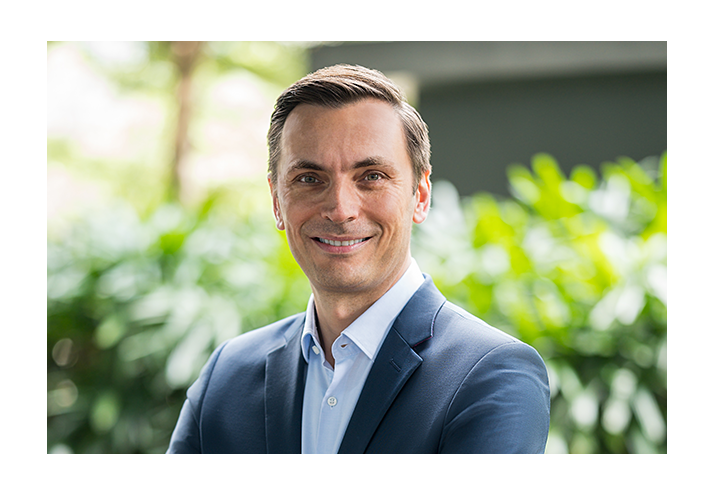
»The plastic waste challenge is solvable. Our member companies are deeply committed to this vision. As one of our founding members, Covestro is helping to make it possible.«
Jacob Duer President & CEO, Alliance to End Plastic Waste
What do you think?
Approximately how many metric tons of plastic waste end up in the oceans every year?
Correct! Approximately 8 million tons of plastic waste end up in the oceans every year.
Unfortunately not correct. Approximately 8 million tons of plastic waste end up in the oceans every year.
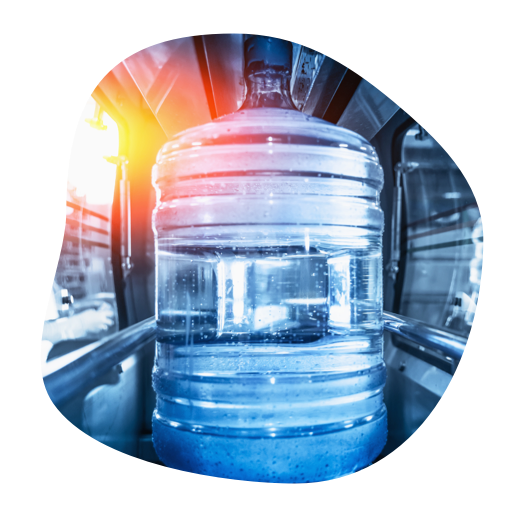
From Spring
to Sound
“Innovative recycling” and “joint solutions” are two of the four pillars of Covestro’s circular economy approach. A prime example of what they entail can be found in China, where we integrate recycled 19-liter water barrels, such as those used in water dispensers, into our polycarbonate blends. Our cooperation with Chinese bottled water manufacturer Nongfu Spring and plastics recycling company Ausell marks the first of its kind in the industry.
Up to 70 %
of certain polycarbonate blends already consist of recycled material.
“As the inventor of polycarbonate, Covestro has been focusing on developing recycling solutions for polycarbonate that has reached the end of its life cycle. This waste material is extremely valuable, so we are committed to working with our partners in the value chain to enable its upcycling and prevent it from going to waste, thereby fostering a circular economy,” says Holly Lei, President of Covestro China.
New products from recycled material
Every year, Nongfu collects over one million discarded barrels, weighing around 1,000 metric tons in total. These are made of transparent polycarbonate and, as such, are both a prime source of waste and easy to recycle. The barrels disposed of to date are now sent by Nongfu to Ausell, where they are washed and re-pelletized into granules before being transported to Covestro’s site in Shanghai, China.
There they are mixed with virgin polycarbonate to tweak the material’s properties to customer requirements. Some blends contain up to 70 percent recycled material. They are used in automotive applications, home appliances and electronic devices, such as smart loudspeakers. Another step towards a circular economy taken. Thousands more to go.
»This collaboration promotes the sustainable use of polycarbonate.«
Zhou Li
Secretary of the Board of Directors, Nongfu Spring

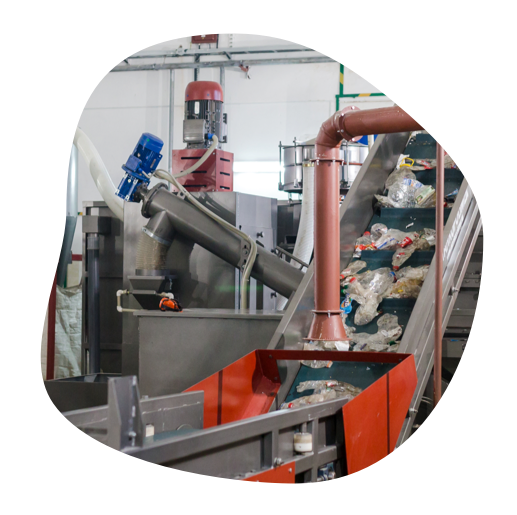
Tracing the Origins of Raw Materials
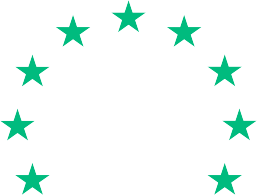
1.5 million Euro
in funding did Circularise receive from the European Union’s “Horizon 2020” programme
The recycling of plastics is a key pillar of a future circular economy. But there is a major challenge to be overcome: Recyclers generally have to process waste that consists of a mix of plastics, and these plastics may also be contaminated or difficult to identify. Separating and recycling them is a highly complex task.
But what if plastics could be traced back to their raw materials? Recycling companies could always use the appropriate methods and get the most out of the recycling process. Dutch start-up Circularise has joined forces with us and material manufacturer Domo Chemicals to create this transparency – with the aid of blockchain technology.
Transparency through blockchain technology
Put simply, Circularise is building a platform for the exchange of detailed and confidential data. Information from every process step in the value chain is collated and linked in a blockchain, with each partner supplying a separate information block from its process area. Such a block contains information on materials used, precursors, processing steps and the like. Digitalizing this information enables the entire, often severely fragmented supply chain to be bound together with a “digital thread.” At the end of this chain, recycling companies are provided with an overview of the origin and composition of plastic waste, giving them important information on what can be recycled and how. It’s an entirely new approach – and Covestro is leading the way.
